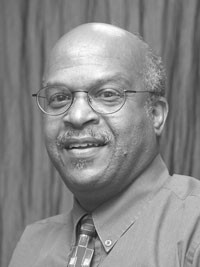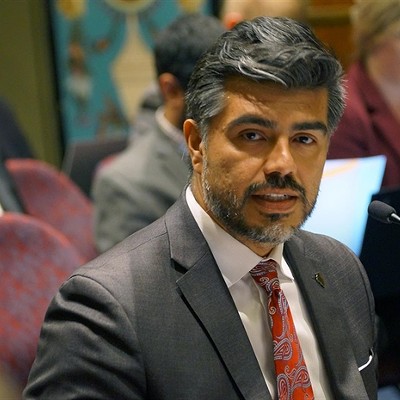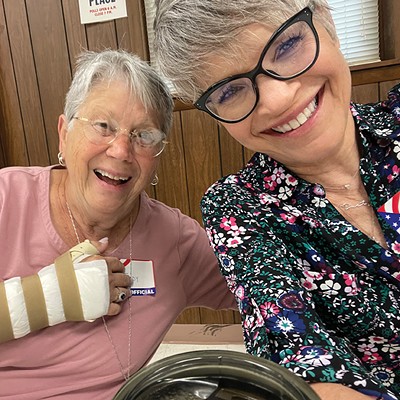It's one thing to say that the whole concept of race is a phony social invention. But making this statement when your job, your livelihood, and indeed your career have been built on this very concept--well, that takes a special brand of backbone. Yet Lawrence C. Johnson did just that last week when he declared his intention to resign his post at the University of Illinois at Springfield.
Johnson, whose official title is Associate Chancellor for Access and Opportunity, is also known around UIS as the "affirmative action officer." He's held similar jobs for most of his professional life--at the Massachusetts Office of Affirmative Action, on the Council on Legal Education Opportunity, as director of human relations programs at the University of Maryland Baltimore County, and as plaintiffs' counsel in the Boston school desegregation case. He's spent a decade at UIS. But Johnson finally decided he was perpetuating a lie.
"You can only keep living a contradiction for so long," Johnson says. "I could not continue to live contrary to what I professed."
What Johnson professes is that there is only one race, and that is the human race. Black, white, Asian, Hispanic--all these labels are nothing more than artificial tags society has hung around people's necks. In an e-mail he sent shortly after announcing his decision to resign, Johnson challenged the entire university community to dispute his beliefs.
"Is it just me who thinks that the human genome findings that all humans are 99.95% the same; and that there's more genetic variance among the African diaspora than between Africans and Europeans, means that we have to change how we think and behave about 'race'?"
Johnson realized this belief could not coexist with his job. "In the early 1960s, the position was that race ought not matter, and when we caught anyone considering race, that was discrimination," Johnson recalls. "Well, the position of the profession has evolved to where it now advocates the consideration of race in decision making. So my decision is a result of the combination of the shifting position within the profession and the firming up of the belief I began my career with--that we are all one. I think it's time for us to let go of the ideology of race in our lives."
The only time race should be considered, Johnson says, is in formulating a remedy for racial discrimination. Whether he means only discrimination identified by a court of law is a topic he declined to discuss. But he did say that, in the University of Michigan case currently being considered by the U.S. Supreme Court, he would support affirmative action measures if the court sided with the student intervenors, who claim the university has a history of discrimination, but not if the court sided with the university, which favors minority applicants simply to "increase diversity."
Johnson, who heads Mayor Karen Hasara's task force on race relations, also declined to comment on how his beliefs might apply to the city's current affirmative action policies for the Springfield police and fire departments, saying to do so "could confuse my purpose for resigning, that is: 'race' doesn't matter."
But he will remain on the task force as long as the mayor chooses. "I've made a commitment to the task force that I will serve to 2004, depending on the wishes of the new mayor," Johnson says.
He has no idea where he'll end up after June 30, the day his resignation takes effect. Asked if he would consider a job with a political party, Johnson says yes. He has no job offers, but would entertain the idea of almost any opportunity. "This is the proverbial leap of faith. I'm in the market for anything other than equal opportunity work," he says. "I walked away from a job 10 years ago and landed on my feet. This is different, in that I'm walking away from a career. But God's going before me on this one too, so I have no fear about the outcome of my decision."


















